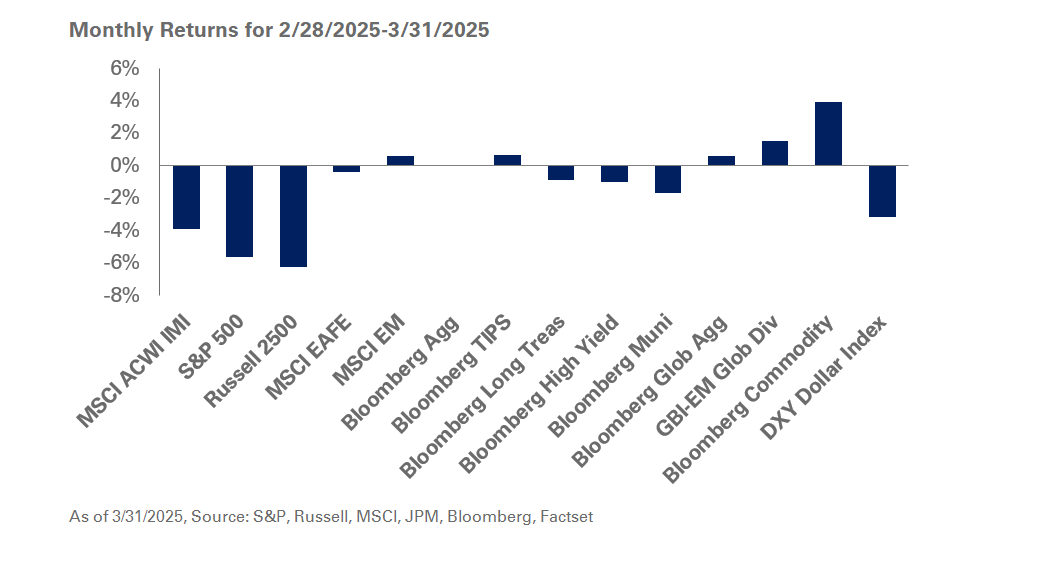Along with a global health crisis, COVID-19 brought with it financial uncertainty, record unemployment, and a worldwide economic slowdown.
After a full quarter in lockdown, society is starting to rebound as countries are opening their borders, and major financial markets have recovered most of their losses from March 2020. People can now leave their homes and participate in most activities, albeit with restrictions.
During Part 7 of our webinar series regarding the market impact of COVID-19, I spoke with Michael Cembalest, chairman of market and investment strategy at J.P. Morgan Asset Management.
Throughout our conversation, Cembalest shared his thoughts regarding how the markets will rebound, what the future holds for the dollar, and how relations between the United States and China will fare moving forward.
Here’s a recap of his outlook on the markets, consumer activity and international relations:
Market Sell-Off and Recovery
After experiencing the largest bull market in history, financial markets dropped substantially in March 2020 amid coronavirus concerns. The Dow sank below 18,000, which was lower than when President Trump was sworn into office in January 2017. Similarly, the S&P 500 dropped to nearly 2,200.
These market plunges decimated some retirement and investment accounts, which prompted many hard-hit consumers to hold off on important events, such as retiring or purchasing big-ticket items.
Luckily, markets have recovered since then, as the Dow and S&P 500 have bounced back after their sharp declines. These recoveries have happened despite high unemployment and heavy social restrictions.
Generous government programs, like the CARES Act, have been a primary cause behind the markets’ recovery. Some provisions of this act provide businesses with funding to keep their doors open and reduce layoffs.
Currently, the unemployment rate is relatively high at around 13%. Unemployment benefits, including a federal bonus of $600 a week, have helped keep impacted individuals afloat. In fact, some of those who are unemployed and furloughed are actually earning more now than they would if they were working.
“In-person, card-present spending at restaurants, amusement parks, hotel, lodging and non-Amazon retail, was down 60% a couple of months ago, and is now down 20%,” said Cembalest. “When we saw this happening, we knew this was a good signal that a lot of the more catastrophic forecasts of consumer activity were probably not going to happen.”
About two-thirds or three-quarters of people out of work are getting federal, state, and local benefits equal to their wages, and so if you think about a puzzle, the piece that got squished into place was the deficit, according to Cembalest.
The Future of the U.S. Dollar Hangs in the Balance
The generous provisions of the CARES Act, stimulus checks, and enhanced unemployment benefits can be helpful in the short term. But, it’s important to consider the long-term consequences these plans can have on our economy and the U.S. dollar.
For example, inflation has been relatively low over the last few years. These combined events and low rates will put more dollars into the economy, which could increase inflation over the long term.
The Federal Reserve has attempted to raise rates gradually over the last few years, but it has had to lower them to near zero despite its initial higher projections.
A tax cut and the need for stimulus have caused our deficits to widen. If not kept in check, the U.S. deficit could grow to be as high as in developing countries, like Ecuador. As our nation’s deficit increases, one of the long-term risks is the U.S. dollar losing its status as the world’s reserve currency.
This could also prompt the U.S. to raise taxes on incomes and corporations, which could dent our competitive advantage in the global economy. Before the Tax Cuts and Jobs Act passed in late 2018 and reduced the corporate tax rate to 21%, the U.S. had one of the highest corporate tax rates in the developed world.
“Raising corporate tax rates would definitely take a chunk out of the market. You’d see companies start doing inversions [into more attractive foreign tax regimes] again,” said Cembalest. “No company ever inverted into the U.S. a few years ago, which was a clear sign we had a non-competitive corporate tax code.”
International Relations In Turmoil
COVID-19 has not only impacted economies, but it also has put an additional strain on international relations. Before the virus, countries were already wary of the Chinese treatment of foreign intellectual property (IP).
In fact, one in five companies noted that China had stolen their IP during 2019. This is a persistent point of contention between the U.S. and Chinese governments. If not prevented, it could lead to increased tariffs.
U.S. Foreign Investment in China and Trade Relations
Besides this, the Trump administration has enacted many rules to restrict foreign investment in U.S. technology and real estate. These restrictions apply to any foreign investor, but the main purpose is to prevent China from accessing sensitive American technology and other assets.
The administration has also blacklisted companies, like the large Chinese telecommunications firm Huawei, and it is planning to restrict the specific technology that can be exported to China.
“A lot is on the margin … a lot of companies doing business in China are doing so to meet local demand. They’re not producing in China for re-export back into the U.S., so changing U.S. tax policy or tariffs isn’t necessarily going to change their behavior,” Mr. Cembalest. “China sells us stuff, and we sell stuff to China in China.”
He added, “There’s a perception at times that the increase in S&P profit margin was due to globalization. [But] analysis has come out [citing Empirical Research Partners] that shows falling interest rates; falling tax rates; increased use of tax havens by U.S. companies; and efficiency gains from plant, property, equipment and software investment in the U.S. were 75% to 80% the reason for expanded margins, and only around 20% came from offshoring.”
Webinar Key Takeaways
- The markets had devastating losses in March 2020, but have recovered since. Generous government benefits are one of the main factors behind this rally.
- Plentiful government benefits can help in the short term, but excessive spending can cause high deficits (like those in developing nations), high inflation, and increased taxes. It could also cause the U.S. dollar to lose its status as the reserve currency.
- Relations with China might be rocky going forward.
Want to learn more about recovering from the March 2020 market sell-off, the future of the U.S. dollar, international relations with China, and worldwide efforts to stop COVID-19? Listen to the free webinar recording for Cembalest’s complete insights here.



